With its dark and brooding tone, thrilling action sequences, and stellar performances, The Dark Knight Trilogy has become a beloved cultural phenomenon.
Directed by Christopher Nolan and starring Christian Bale as the Caped Crusader, the trilogy has been praised for its technical achievements and cinematic scope.
Yet, despite its many accolades, some critics argue that the trilogy may be overrated and that its flaws and shortcomings have been overlooked amid its immense popularity.
This article will examine some criticisms against The Dark Knight Trilogy and explore why some people believe that films may not be as flawless as they are often portrayed. From the series' storytelling and characterization to their deviations from comic book lore, we will delve into the reasons why some fans and critics believe that The Dark Knight Trilogy may not be as perfect as it seems.
Unpacking the legacy: Analyzing the criticisms surrounding The Dark Knight Trilogy
1) Simplistic and clichéd storytelling
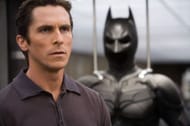
One of the major criticisms of The Dark Knight Trilogy's storytelling is that it fails to push the boundaries of the superhero genre. While the films are undoubtedly well-crafted, they are ultimately conventional in their storytelling approach.
The series follows a predictable structure, featuring a new villain for Batman to defeat. This predictable formula means that the trilogy's plot becomes repetitive and lacks the freshness and innovation seen in other successful superhero franchises like Marvel's Cinematic Universe.
Moreover, some critics argue that the trilogy's simplistic storytelling fails to explore the complexities of the Batman character. The series focuses on Batman's superhero persona, but little attention is paid to his alter-ego, Bruce Wayne, and the psychological and emotional turmoil he faces.
The lack of character development and exploration means that the films fail to delve deeper into the complexities of the Batman character and instead rely on superficial action and spectacle to drive the plot forward.
2) Overreliance on Batman
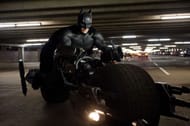
The over-reliance on Batman is a significant issue in the Dark Knight Trilogy. While the film's central plot revolves around Batman, the supporting cast lacks enough screen time or development.
Alfred, for instance, is reduced to providing exposition and advice to Bruce Wayne, while Commissioner Gordon's character arc is limited to being a police officer who occasionally teams up with Batman. Rachel Dawes, Bruce's love interest, is another example of a poorly developed character that ultimately serves as a plot device.
This lack of character development is disappointing because the Dark Knight Trilogy boasts an impressive cast of actors such as Christian Bale, Michael Caine, and Gary Oldman.
Had the filmmakers given these characters more screen time and development, the trilogy could have been a more well-rounded viewing experience. By ignoring the supporting cast, the trilogy becomes a one-dimensional story of Batman's struggles against various villains, leaving little room for exploration of the world around him.
3) Inconsistent tone
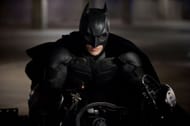
One of the most significant criticisms of The Dark Knight Trilogy is the inconsistency of its tone. While the series is known for its dark and gritty aesthetic, critics argue that its tonal shifts can be jarring and detract from the viewing experience.
For example, Batman Begins presents a relatively grounded and realistic take on Batman mythology, focusing on Bruce Wayne's journey to becoming the Caped Crusader. However, The Dark Knight shifts to a more fantastical tone with the introduction of the Joker, who brings chaos and unpredictability to the story.
Furthermore, The Dark Knight Rises combines elements of both realism and fantasy with a plot that includes a nuclear bomb, a prison escape, and an underground army.
While some fans appreciate the trilogy's attempts to blend various tones and genres, others argue that these shifts can distract and undermine the series' overall impact. The inconsistency of the trilogy's tone remains a significant point of contention among fans and critics alike.
4) Nolan's overemphasis on themes

One common criticism of The Dark Knight Trilogy is the overemphasis on themes, which some argue detracts from the series' storytelling. Christopher Nolan's philosophical exploration of justice, sacrifice, and the struggle between good and evil is thought-provoking.
However, these themes can sometimes feel heavy-handed and distract from the series' plot, leaving some viewers unsatisfied with the overall viewing experience. While the themes resonate with some audiences, others believe they overshadow the series' narrative and characters.
This overemphasis on themes and other criticisms has led some to argue that The Dark Knight Trilogy may be overrated. However, Nolan's exploration of more profound philosophical concepts remains a defining feature of his filmmaking, even if some audiences find it excessive in this trilogy.
5) Ignoring comic book lore
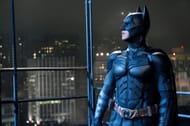
One of the most significant criticisms of The Dark Knight Trilogy is the series' deviation from the comic book's source material. While some fans appreciate the creative liberties taken by Christopher Nolan, others feel that the films strayed too far from the established lore.
Like Ra's character, Al Ghul is portrayed as a charismatic leader of a global terrorist organization rather than a more mystical figure in the comics. Similarly, Bane's backstory is significantly altered, with the film version being little more than a henchman of Ra's al Ghul rather than a brilliant strategist and mastermind from the comics.
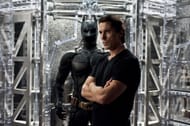
The Dark Knight Trilogy's use of the League of Shadows as a villainous organization is also controversial. In the comics, the League of Shadows is a shadowy group of assassins led by Ra's al Ghul, while in the films, it is portrayed as a global terrorist organization with a vast network of operatives.
While these changes may have been necessary to fit the series' more realistic tone, some fans feel they stripped away essential elements of Batman's comic book mythology.
While The Dark Knight Trilogy is undoubtedly an impressive feat of filmmaking, it may be overrated for several reasons. While these criticisms do not take away from the series' impressive technical achievements, they do suggest that the trilogy may not be the flawless masterpiece that some have made it out to be.
However, it's important to note that opinions on the trilogy are subjective, and many still consider it a groundbreaking and influential work of cinema.
Ultimately, whether or not The Dark Knight Trilogy is overrated is up for debate, but it's undeniably left a significant mark on the superhero film genre and pop culture.
